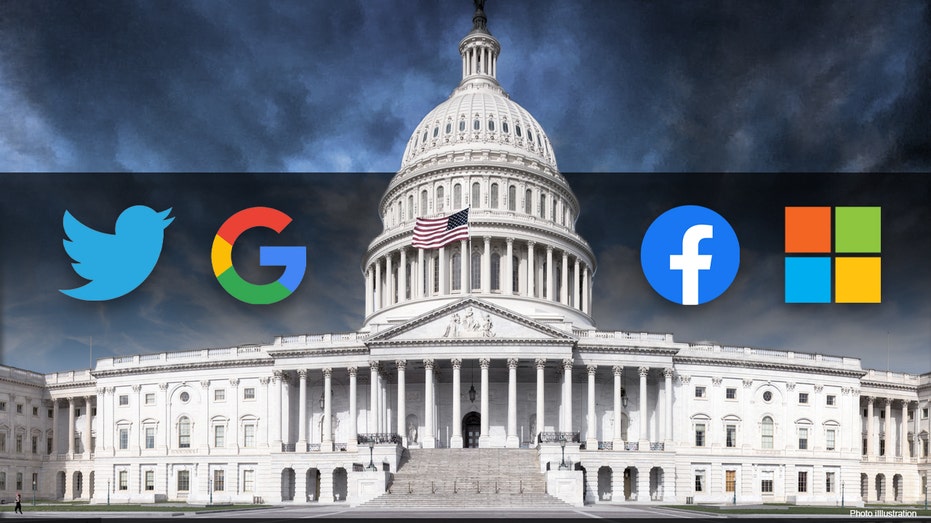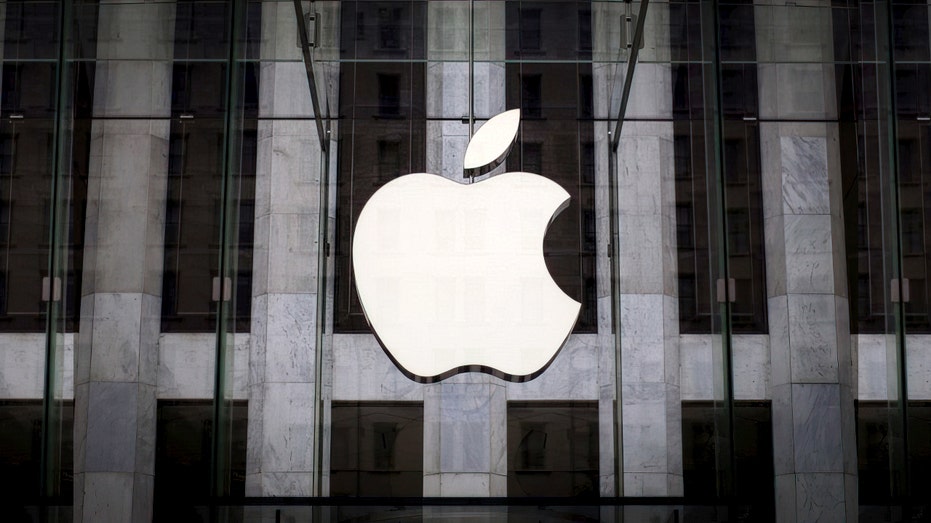GOP primary voters overwhelmingly want Congress to crack down on Big Tech, survey finds
A high percentage of the GOP base agrees firms like Google, Facebook, and Amazon are monopolies and should be broken up
Eric Schmitt targets Biden, Big Tech in free speech lawsuit: Taking on the ‘biggest, most corrupt institutions’
Missouri AG Eric Schmitt argues the government's alleged collusion with Big Tech to violate the First Amendment 'needs to stop.'
An overwhelming majority of likely Republican primary voters say Congress has not done enough to regulate Big Tech companies, and the GOP base largely wants federal lawmakers to rein in tech giants and even break them up, a new poll found.
In a survey conducted by OnMessage Public Strategies for America Next and first obtained by FOX News Digital, 79% of GOP primary voters responded that they either strongly or somewhat disapprove of the job Congress has done in regulating Big Tech firms, with 73% saying the industry's major players are not regulated enough.

A new survey of likely Republican primary voters shows the GOP base wants to see Congress crack down on Big Tech firms. (istock / iStock)
| Ticker | Security | Last | Change | Change % |
|---|---|---|---|---|
| GOOG | ALPHABET INC. | 323.10 | -8.23 | -2.48% |
| FB | PROSHARES TRUST S&P 500 DYNAMIC BUFFER ETF | 42.42 | +0.35 | +0.84% |
| AMZN | AMAZON.COM INC. | 210.32 | -12.37 | -5.55% |
Wholly 85% of the voters polled agreed with the statement that "Big Tech companies, like Google, [Meta-owned] Facebook and Amazon, have become too powerful and are now monopolies that are destroying competition and abusing consumers."
Respondents also agreed by a large margin that several companies should be split up. Seventy-nine percent of those polled agreed either strongly or somewhat that "many Big Tech companies have become too big, too powerful and too abusive, and for these reasons we should use our antitrust laws to break them up like we have done in the past with oil, steel and telephone companies."
On that front, 58% of the GOP voters told OnMessage that they would be much more likely to vote for a candidate that favors breaking up big tech firms than one who doesn't. Only 24% responded that they would favor a candidate that "believes that government should not intervene in the free market and leave Big Tech companies alone as long as they are not breaking the law."

Election officials check-in at a polling location in Columbus, Ohio, U.S., on Tuesday, May 3, 2022. (Photographer: Matthew Hatcher/Bloomberg via Getty Images / Getty Images)
GOP voters also expressed overwhelming support for two bipartisan bills currently being discussed in Congress that aim to crack down on dominant tech firms.
FCC COMMISSIONER SLAMS BIDEN'S ‘DISINFORMATION BOARD’ AS ‘ORWELLIAN’ AND ‘UNCONSTITUTIONAL’
Eighty-one percent of the Republican voters polled said they are in favor of the American Innovation and Choice Online Act that would prohibit certain major online platforms from giving preference to their own products or unfairly limiting products from competitors. When asked about the Open App Markets Act that would establish tighter rules for mobile phone giants Apple and Google-owned Android's operation of their respective app stores, 85% of GOP voters said they support the legislation.

An Apple logo hangs above the entrance to the Apple Store on 5th Avenue in the Manhattan borough of New York City, July 21, 2015. REUTERS/Mike Segar/File Photo (REUTERS/Mike Segar/File Photo / Reuters Photos)
| Ticker | Security | Last | Change | Change % |
|---|---|---|---|---|
| AAPL | APPLE INC. | 278.12 | +2.21 | +0.80% |
The results of the poll are no surprise to Rachel Bovard, senior policy director at the Conservative Partnership Institute.
"GOP voters are reacting to what they've observed: Big Tech not only stifles speech at an unprecedented scale, but it distorts access to the market as well," Bovard told FOX Business in reaction to the findings. "Americans respect the free market immensely. What they don't support is oligarchic, oligopolistic gatekeepers which control avenues to speech and commerce. And in many ways, that is what these companies have now become."
GET FOX BUSINESS ON THE GO BY CLICKING HERE
"This poll also confirms what congressional Republicans paying attention to their base understand: they need to act swiftly and decisively against Big Tech, particularly if they find themselves in the majority next Congress," Bovard continued. "This isn't an issue that will resolve with strongly worded letters and congressional hearings. They need to enact a multipart legislative agenda."





















